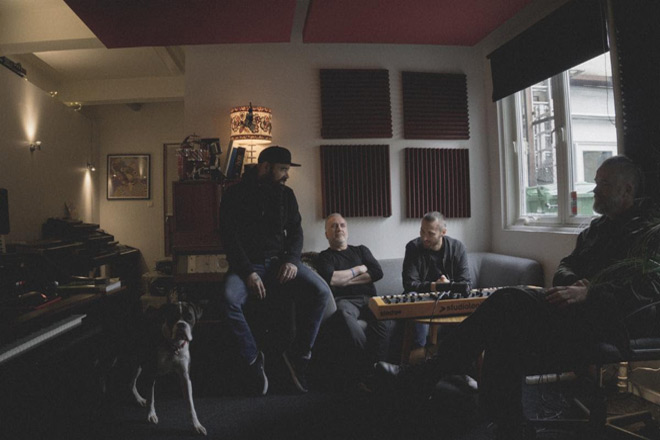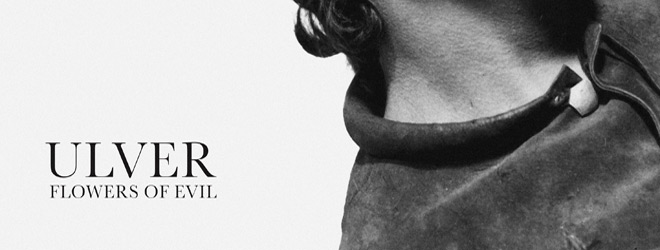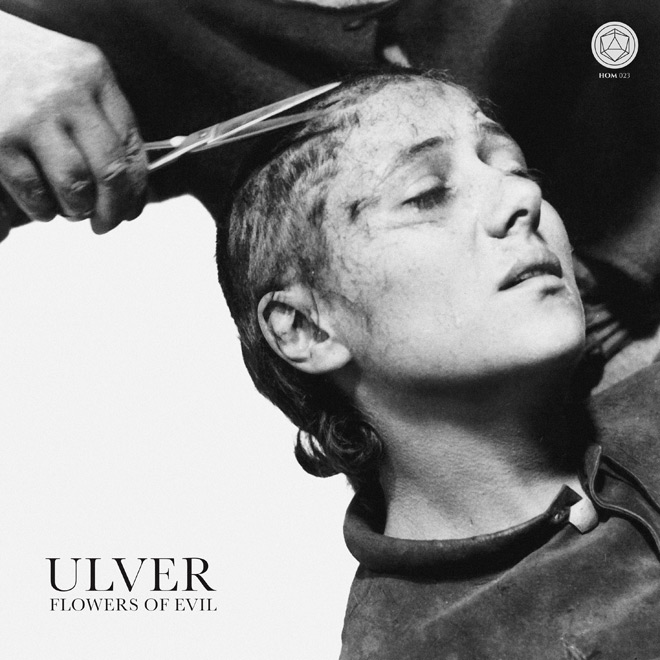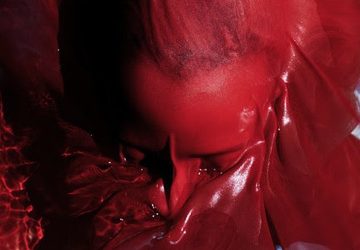
On August 28th, 2020, the band will release its sixteenth studio album, once again via House of Mythology. Entitled Flowers of Evil, the band looks to continue and build upon the magnificence that was 2017’s The Assassination of Julius Caesar. As creatively restless a group as one can name, has Ulver finally arrived at a sonic mode within which they might choose to remain a while?
No review of an Ulver album, at this point in time, should belabor itself with remark that the band no longer resembles the one which gave us either the raw Black Metal of 1997’s Nattens Madrigal or the grandiloquent Folk of 1996’s Kveldssanger. Their shift into the sublime realms of Synth-pop may not be the first such shift by a formerly heavy band, but for Ulver it has been such a success because of the vocals of Krystoffer Rygg. His singing voice is nothing short of amazing, evoking the pipes of ’80s Brit-pop legends like Simon Le Bon (Duran Duran), Mark Hollis (Talk Talk) and Dave Gahan (Depeche Mode).
Languid opener “One Last Dance” opens as a tale being told in Rygg’s smoother-than-marble voice, the lyrics a bit more straightforward than on prior works. Lavish keys swell and build until the pulsing beat which backstops most of the album takes hold. The atmosphere is a “chill” one, even trance-like.
The mid-paced flow of “Machine Guns and Peacock Feathers” features some tight muted guitar notes placed cleverly amid keyboard flourishes, making the tune as comfortable in a discotheque as anywhere else. The style of the last album persists, albeit in a bit of a less adventurous fashion than on TAOJC. Reflective and moody, the strains of “Nostalgia” succeed in establishing said mood with a host of hypnotic keys and a vocal arrangement mixed with some endearing female vocals mixed in.
One notable difference on Flowers of Evil is the relatively even pace of the music throughout its length. The songs tend to remain within their own bounds, as opposed to on TAOJC where some begin in one place and take the listener to another. This time around the music is stripped of such dalliances with length and pace, yet each composition bears the mark of intricacy and care.
Ever the unpredictable entity, Ulver has crafted odes of darkness by tackling the horrors of David Koresh on “Apocalypse 1993.” The story is woven into the rhythmic heartbeat of synth-wave, with subtle changes of mood abounding. The repetitive looping on “Little Boy” benefits from haunting swirls of guitar and swirls of psychedelic synths. Lilting yet gravid, lead single “Russian Doll” exemplifies the pop sensibilities employed by Ulver as they remain committed to exploring the darkness in men’s souls.
While the songs on Flowers of Evil are expertly crafted and will occupy a place in the Synth-pop world at the very top of the genre, the overall effect of the album does not quite reach the silken majesty of TAOJC. That being said Ulver are nonetheless at the very top of their game, tapping into a sound and style that while it may have its roots in prior decades, when focused through their own lens sounds as fresh as if it all popped into existence yesterday. For this reason, Cryptic Rock gives Flowers of Evil 4 out of 5 stars.






